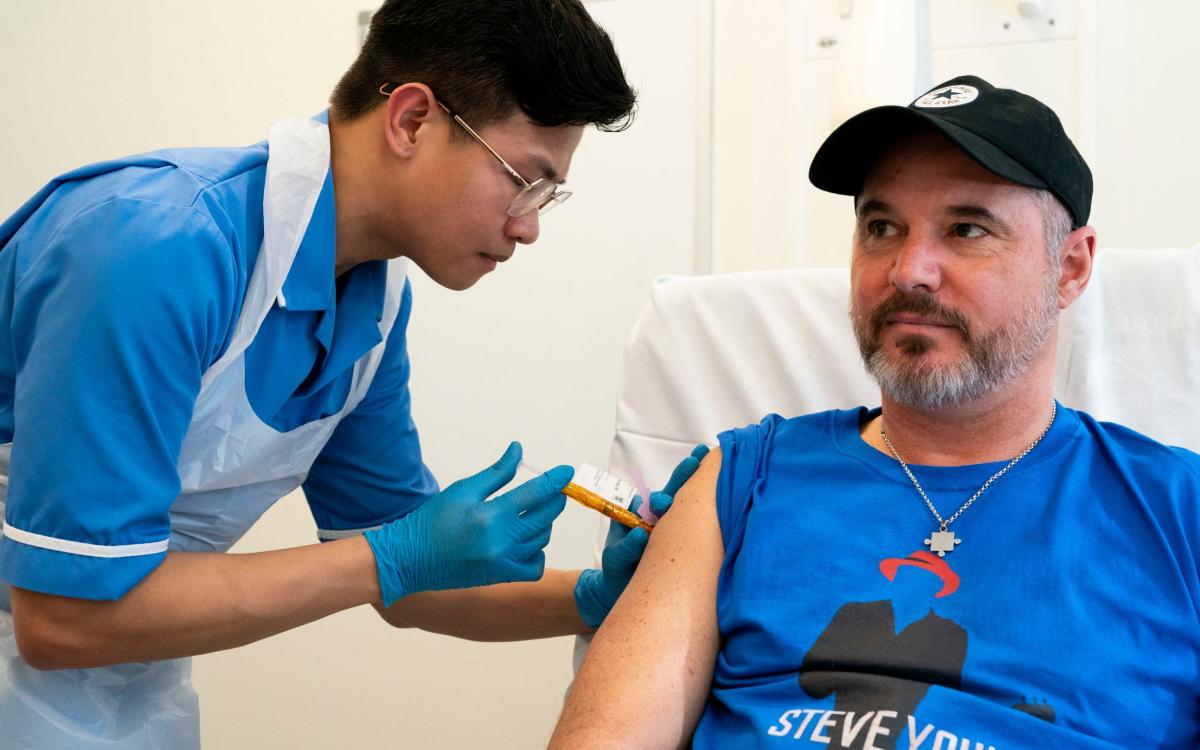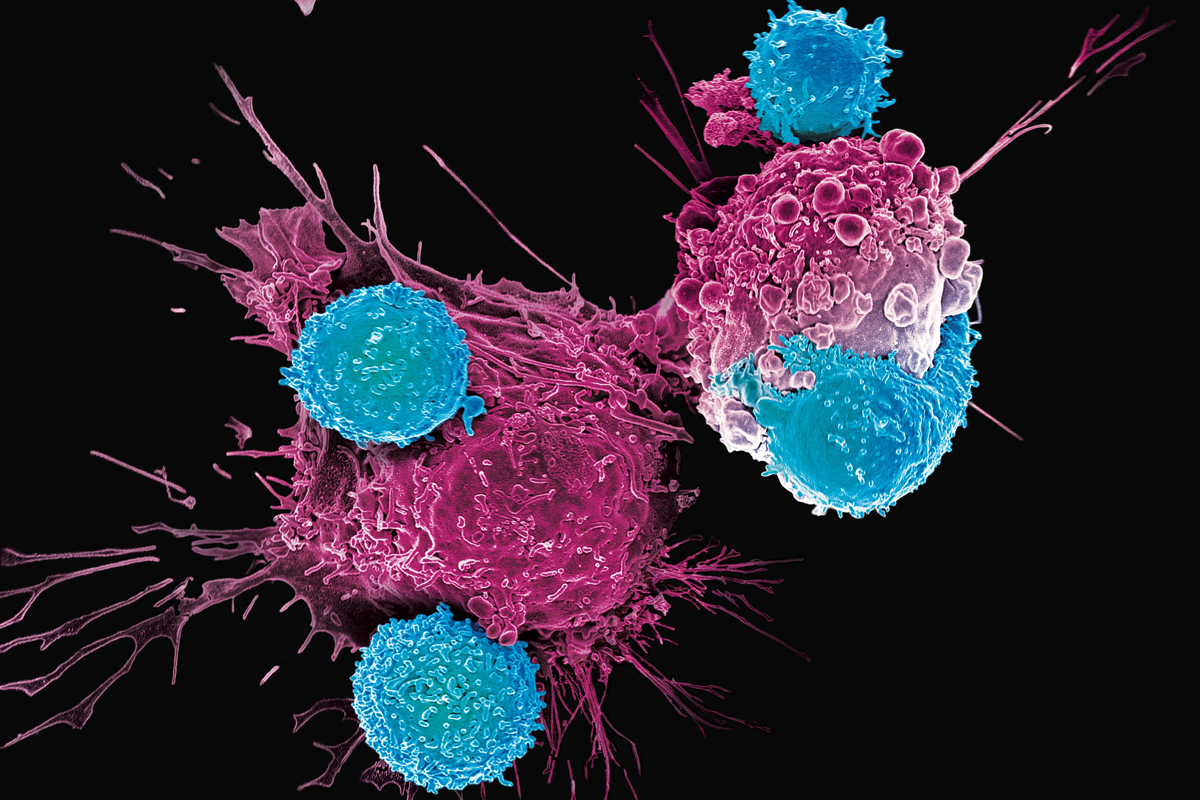-
 News
A real breakthrough in melanoma treatment: a personalized mRNA vaccine trial
News
A real breakthrough in melanoma treatment: a personalized mRNA vaccine trial
-
 Medical articles
CAR T therapy: helps treat cancer when other methods fail
Medical articles
CAR T therapy: helps treat cancer when other methods fail
-
 Medical articles
Cancer incidence is steadily increasing: disappointing WHO forecast for 2050
Medical articles
Cancer incidence is steadily increasing: disappointing WHO forecast for 2050
-
 Medical articles
Stem cells bring hope to millions of people suffering from hearing loss
Medical articles
Stem cells bring hope to millions of people suffering from hearing loss
-
 Medical articles
TOP 10 clinics for oncology treatment 2023
Medical articles
TOP 10 clinics for oncology treatment 2023
All news
Intracranial hematoma treatment
Intracranial hematoma is an accumulation of blood in the skull or inside of the brain. Hematomas form due to bleeding from a ruptured vessel, which could have been caused by a head injury or vessel’s diseases.
Possible symptoms: constant headache, confusion, memory, speech and moving impairment, drowsiness.
- Intracranial hematoma occurs in 10% of people with severe head trauma;
- Without proper treatment, the mortality rate is 60-80%.
Diagnostics: CT, MRI, angiography.
Treatment: surgical drainage, craniotomy, therapy with new generation drugs.
MedTour patients recommend clinics for the treatment of intracranial hematoma:
Doctors for the treatment of intracranial hematoma
Patient reviews
Frequently Asked Questions
This is a hemorrhage inside the skull.
Mostly it’s high blood pressure. Because of poorly controlled blood pressure, vessels can spontaneously rupture and cause cerebral hemorrhage.
Other risk factors are:
- Smoking and excessive alcohol consumption,
- Blood thinning drugs (anticoagulants),
- Congenital blood clotting disorder,
- Amyloid angiopathy,
- Medicines (cocaine),
- Brain tumors and vascular malformations (cerebral aneurysms or angiomas).
Manifestations depend on the size and location of the hematoma. Depending on the location:
- Headache, nausea and vomiting,
- Visual disorders,
- Instability and dizziness,
- Loss of body movement (hemiplegia, paralysis),
- Unilateral sensory disorders,
- Speech disorders and impaired understanding of speech,
- Disorders of breathing and consciousness.
The following types are distinguished, depending on the place of hemorrhage:
- Intracerebral – in the brain tissue.
- Epidural – between the meninges and the skull bone.
- Subdural – under the meninges on the brain.
- Subarachnoid – between the pia mater and the arachnoid membrane.
For diagnosis, computed tomography (CT) of the skull is performed. With its help, the doctor will detect a cerebral hemorrhage. Alternatively, magnetic resonance imaging (MRI) is used. An angiogram is done to examine the blood vessels in the brain.
Help is provided in the neurological or neurosurgical department. Further treatment options depend on the type and location of the hemorrhage:
- Surgical drainage,
- Craniotomy,
- Drug therapy.
The goal is to avoid or reduce the increase in pressure in the brain and to protect the brain tissue.
Diagnostics of the intracranial hematoma
Using imaging techniques, the doctor determines the location and size of the bleeding. These include:
- Computed tomography – a radiologist takes a detailed picture of the brain and identifies pathological changes.
- MRI – magnetic waves passing through the patient’s brain give an image, after which the doctor draws conclusions about the presence of pathology.
- Angiography – in the case of a hematoma due to an aneurysm, an analysis of the vessels of the head using a contrast agent is performed.
Intracranial hematoma treatment
Small hematomas without symptoms do not need to be removed. But if symptoms appear, you need to see a doctor immediately. In overseas hospitals, neurological changes and intracranial pressure are monitored, and repeated computed tomography of the head is performed.
Drug treatment
If the patient is taking blood-thinning medications such as warfarin (Komadin, Gentoven), medications with the opposite effect will be prescribed. This will reduce the possibility of another bleeding.
Surgery
Treatment for hematoma often includes surgery. The type of surgery depends on the type of hematoma:
- Surgical drainage – the doctor makes a small hole in the skull and pumps out the blood using a special drainage machine.
- Craniotomy – opening a portion of the skull (trepanation) to remove blood. This method is used for large effusions of blood.
Benefits of treatment in a clinic abroad
Overseas hospitals have the following advantages:
- Renowned doctors with over 20 years of experience,
- Specialized mid-level personnel,
- Own laboratory for the production of radiopharmaceuticals,
- Modern equipment and skills in its use,
- A clear system for the formation of prices for services.
Published:
Updated:






Велика подяка за життя. Возняк Олександр Михайлович, Зенкевич Ярослав Павлович.
Кажуть Феофанія для міністрів, ні ця лікарня для людей. І я цьому приклад. Кожного року після операції присилаю МРТ на контроль. Ні разу не відмовили. Всіх пам’ятають, хоч я простий український роботяга. Ці люди від Бога, для людей!